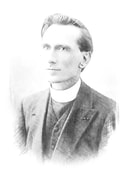psalm 34

When we look at David’s backstory, we don’t really see this full sense of respect, awe, and submission to God. There was a time when Saul sent men to apprehend and kill David at his home. David fled through a window and Michal, David’s wife, took an idol and laid it on the bed as a decoy. When Saul’s men came for him, she said he was ill so that David might get away with a good head start. Another time, David was expected to sit at Saul’s table for a feast, but he asked his friend Jonathan to lie to his father about David’s absence. Imprisoned, he faked insanity to gain release. David once fled from Saul to a city called Nob and lied to a priest named Ahimelech, saying Saul had commissioned him to carry out an urgent task. David requested provisions and a weapon. Ahimelech gave him some of the consecrated bread and the sword David had taken from Goliath. When Saul heard of the favor David had received in Nob, he commanded that eighty-four priests, including Ahimelech, be executed. Not only the priests, but also every man, woman, and child. David later acknowledged his deception was indeed costly, as he was morally responsible for the massacre at Nob.
During this time, David approached all his problems in a down-to-earth and practical way, and deception and violence became his way of dealing with his fear. It seemed acceptable and made perfect sense if it was done to preserve his life and help make him feel safe and secure. However, in Psalm 34 we see David recognizing that his biggest problem was that he feared man in these situations more than he feared God. In other psalms of David, we see him encourage us not to fret about the prosperity of the wicked, but to remember their soon and sure destruction. And he calls us to focus on all the good and victory God has in store for those who trust Him. -FaithGateway
During this time, David approached all his problems in a down-to-earth and practical way, and deception and violence became his way of dealing with his fear. It seemed acceptable and made perfect sense if it was done to preserve his life and help make him feel safe and secure. However, in Psalm 34 we see David recognizing that his biggest problem was that he feared man in these situations more than he feared God. In other psalms of David, we see him encourage us not to fret about the prosperity of the wicked, but to remember their soon and sure destruction. And he calls us to focus on all the good and victory God has in store for those who trust Him. -FaithGateway
|
Psalm 34:9-10:
9 O fear the Lord, ye his saints: for there is no want to them that fear him. 10 The young lions do lack, and suffer hunger: but they that seek the Lord shall not want any good thing. |






